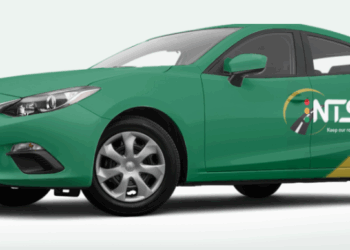Buying or selling a car in Kenya can be an exciting milestone—but it also comes with risks. With the rise of online car marketplaces and informal deals, scams have become increasingly common. Whether you’re a buyer looking for a second-hand deal or a seller trying to make a clean transaction, understanding how to spot and avoid scams is essential to protect your investment.
Let’s dive into the most common scams in the Kenyan car market and learn practical ways to steer clear of trouble.
Understanding Common Scams
Scammers have become increasingly creative in the car trade scene, targeting unsuspecting buyers and sellers with fake promises and misleading information. Here are some of the most common scams in Kenya:
- Fake Listings: Fraudsters often post attractive car ads online with unrealistically low prices. Once contacted, they ask for a deposit to “secure” the vehicle—then vanish.
- Phishing and Identity Theft: Some scammers send fake links or websites that mimic legitimate car sales platforms. Clicking such links could expose personal information or lead to financial loss.
- Ghost Sellers or Buyers: These are individuals who pretend to be legitimate dealers or buyers but never intend to complete a real transaction. They may use forged documents or bounce payments.
- Odometer Rollbacks: Sellers may tamper with a vehicle’s mileage to make it appear less used than it actually is.
Understanding these tricks is your first step toward protecting yourself in the car market.
Tips for Buyers
Buying a car is a major investment, and being cautious can save you from a lot of regret. Here are practical steps to help you avoid falling into traps:
- Verify the Vehicle History: Always ask for the vehicle’s logbook, service records, and import documents if it’s a used import. Cross-check details with NTSA’s TIMS portal.
- Conduct a Thorough Inspection: Bring a trusted mechanic to examine the vehicle. This helps identify hidden damage or signs of tampering.
- Meet in Public Spaces: Never agree to view or test a car in isolated areas. Preferably meet at busy petrol stations or secure locations.
- Avoid Upfront Payments: Don’t pay any deposit before physically inspecting the vehicle and confirming the seller’s identity.
- Use Trusted Platforms: To explore verified second-hand cars, visit auto24.co.ke. The platform lists genuine listings and reduces the risk of scams.
Read more here on how to choose the right second-hand car for your needs.
Tips for Sellers
Just like buyers, sellers also need to be cautious. Scam attempts like fake payments and aggressive buyers are real concerns. Here’s how to stay safe:
- Insist on Secure Payments: Prefer mobile money transfers or direct bank deposits. Always confirm the payment has cleared before releasing the vehicle.
- Vet Potential Buyers: If a buyer seems overly eager or avoids meeting in person, that’s a red flag. Real buyers will want to inspect the vehicle thoroughly.
- Don’t Share Too Much: Avoid giving out your personal information such as ID copies, home address, or banking details to random buyers.
- Watch for Fake Cheques or Receipts: Always verify payment methods with your bank or financial institution before confirming a transaction.
Discover additional tips on selling your car safely by visiting autoskenya.com, a reliable source for automotive insights.
The Importance of Documentation
Proper documentation is the backbone of any secure car transaction. Here’s what both buyers and sellers should ensure:
- Original Logbook: Confirm that the logbook matches the seller’s ID and vehicle chassis number. Avoid copies or “lost logbook” deals.
- Sale Agreement: Always draft and sign a sale agreement indicating names, ID numbers, vehicle details, and terms of sale. Have a witness sign too.
- Transfer of Ownership: Use the official NTSA TIMS platform to transfer ownership digitally. Ensure the process is completed before handing over the car.
- Receipts and Acknowledgements: Keep copies of payment confirmations and signed receipts.
For news and updates on automotive laws and trends, check out automag.co.ke, a Kenyan platform offering trusted car reviews and industry insights.
Conclusion
Buying or selling a car in Kenya doesn’t have to be stressful. By staying informed, asking the right questions, and using secure platforms, you can confidently navigate the process and avoid falling prey to scams. Remember, if a deal sounds too good to be true—it probably is.
Always verify documents, inspect vehicles in person, and use trusted platforms like auto24.co.ke to make safer transactions. Whether you’re in Nairobi or Kisumu, vigilance is your best defense in the car market.
Frequently Asked Questions (FAQ)
1. How can I tell if a car listing is fake?
Fake listings usually feature prices that are too good to be true, vague descriptions, and untraceable seller information. If the seller pressures you to pay a deposit before seeing the vehicle, it’s likely a scam.
2. What’s the safest way to pay for a car in Kenya?
Use secure methods like mobile money transfers (e.g., M-Pesa) or verified bank transfers. Always confirm that funds have cleared in your account before handing over keys or documents.
3. Is it necessary to involve a lawyer in a car sale?
While not mandatory, involving a lawyer can add an extra layer of security, especially when drafting sale agreements or verifying documents.
4. Can the NTSA help verify a vehicle’s history?
Yes. The NTSA TIMS portal allows buyers to verify ownership details, accident history, and whether a vehicle has been reported stolen.
5. What documents are required when selling a car?
You need the original logbook, your ID, a signed sale agreement, and a completed NTSA transfer process through TIMS. It’s also wise to issue a signed receipt confirming payment.
6. Where can I find reliable used cars in Kenya?
You can explore trusted listings at auto24.co.ke, a platform that verifies sellers and vehicles. For news and tips, visit automag.co.ke or autoskenya.com.




